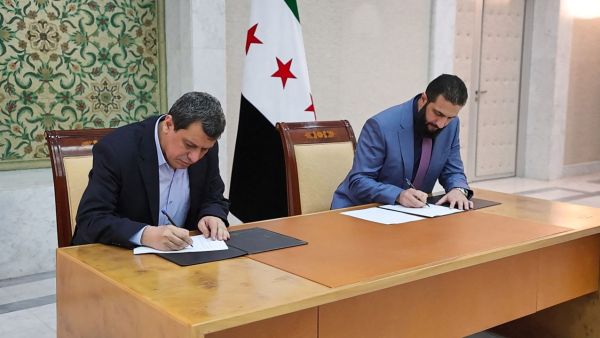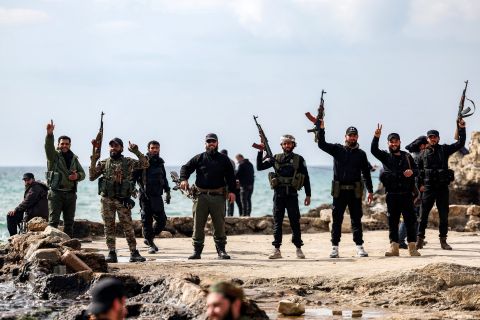ALBAWABA- The Syrian Presidency announced the signing of an agreement to integrate the Syrian Democratic Forces (SDF) into state institutions, emphasizing Syria’s territorial integrity and rejecting any attempts at division.
The deal was reached after a meeting between Syrian President Ahmad Al-Sharaa and SDF Commander Mazloum Abdi.
According to the presidency, the agreement ensures the rights of all Syrians to political representation and participation while recognizing the Kurdish community as an integral part of the Syrian state, with its rights protected under citizenship and the constitution.
The agreement also mandates a nationwide ceasefire and the full integration of civil and military institutions in northeastern Syria into the state’s administration. This includes border crossings, airports, and key resources such as oil and gas fields.
A joint statement released by the Syrian Presidency confirmed the commitment to rejecting separatist calls, combating hate speech, and preventing attempts to create divisions among Syrians.
Notably, the agreement came just a week after Abdullah Öcalan, the imprisoned leader of the Kurdistan Workers' Party (PKK), reportedly called on Kurdish forces to lay down their arms.
The Syrian Democratic Forces (SDF) is a Kurdish-led military coalition composed of U.S.-backed militias and multi-ethnic rebel groups. It serves as the official military arm of the Democratic Autonomous Administration of North and East Syria (DAANES).
The SDF was established in 2015, primarily led by the People’s Protection Units (YPG), and includes Arab, Assyrian, Turkmen, and other ethnic groups.
The SDF has played a key role in the fight against ISIS, receiving support from the U.S.-led Global Coalition to Defeat ISIS.
However, its ties to the PKK—a group designated as a terrorist organization by Turkey, the U.S., and the EU—have been a major point of contention, particularly with Turkey, which views the SDF as an extension of the PKK.
While the SDF officially denies separatist ambitions, its vision of regional autonomy has clashed with both the Syrian government and Turkey’s interests in the region.
The agreement with the new Syrian authority marks a significant step toward stabilizing the region and bringing Kurdish-led forces under the Syrian state’s control.











